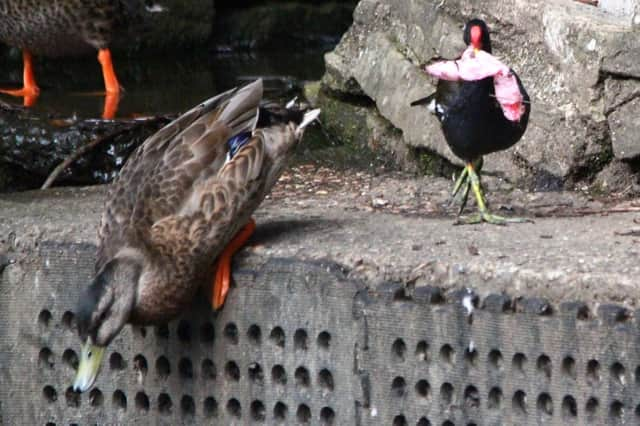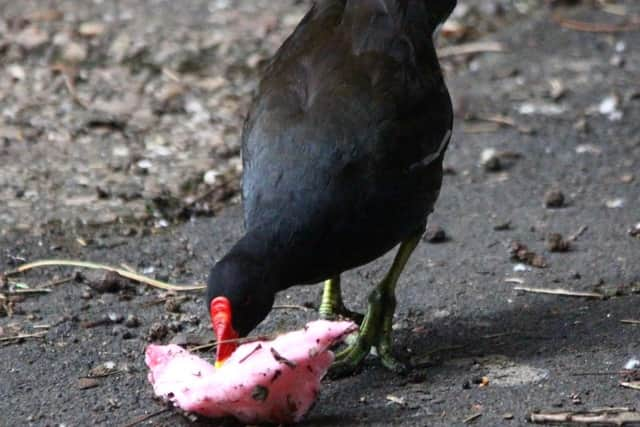Wildlife: Moorhen with a sweet tooth at Graves Park in Sheffield


With a fairground, of course there are the rides – ‘all the fun of the fair’ and everything that goes with that… including hotdogs and relevant to this little story, candyfloss!
I do not know how it got to the pond maybe a hundred yards or so from the fair, but it did. I almost wonder if maybe a carrion crow or a magpie flew off with it and dropped the sugary package somewhere close by the ponds.
Advertisement
Hide AdAdvertisement
Hide AdAs captured in these photographs by Karon Mayor the sweet package was acquired by an adult moorhen, which created havoc as it rushed to find a safe spot from which to devour or at least nibble its unusual find.


Other moorhens joined in the general melee and eventually a juvenile moorhen sneaked off with the bright pink parcel and hid under nearby bushes.
Anyway, the observation of these events triggered a chain of thought and some questions.
Essentially, do these moorhens have a potentially ‘sweet tooth’ or more correctly I suppose, a ‘sweet beak’.
Advertisement
Hide AdAdvertisement
Hide AdIndeed, can birds smell or taste their food? The answer appears to be that whilst most birds rely primarily on sight to locate and select food, they can both smell and taste.


Therefore, whilst a bird’s beak might seem hard, impermeable, and insensitive, in some species at least, like ducks for example, many hundreds of taste buds coat the inside of the bird’s beak.
In that case, it is possible, I suppose, that the moorhens were actually drawn to the blob of congealed candyfloss by colour, smell, and yes, by taste.
I hope that they will not get too addicted to this but maybe it was just a one-off opportunistic thing.
Advertisement
Hide AdAdvertisement
Hide AdWould sugar have the same effect on a beak as it does on our teeth I wonder?
Relatively short-lived moorhens are unlikely to get sugar diabetes, but then who knows?
I suspect that refined sugar in a bird’s diet would not be good, but the opportunities make it a rare occurrence.
Professor Ian D. Rotherham is contactable on [email protected]; readers can also follow Ian’s blog (https://ianswalkonthewildside.wordpress.com/) and his Twitter account @IanThewildside